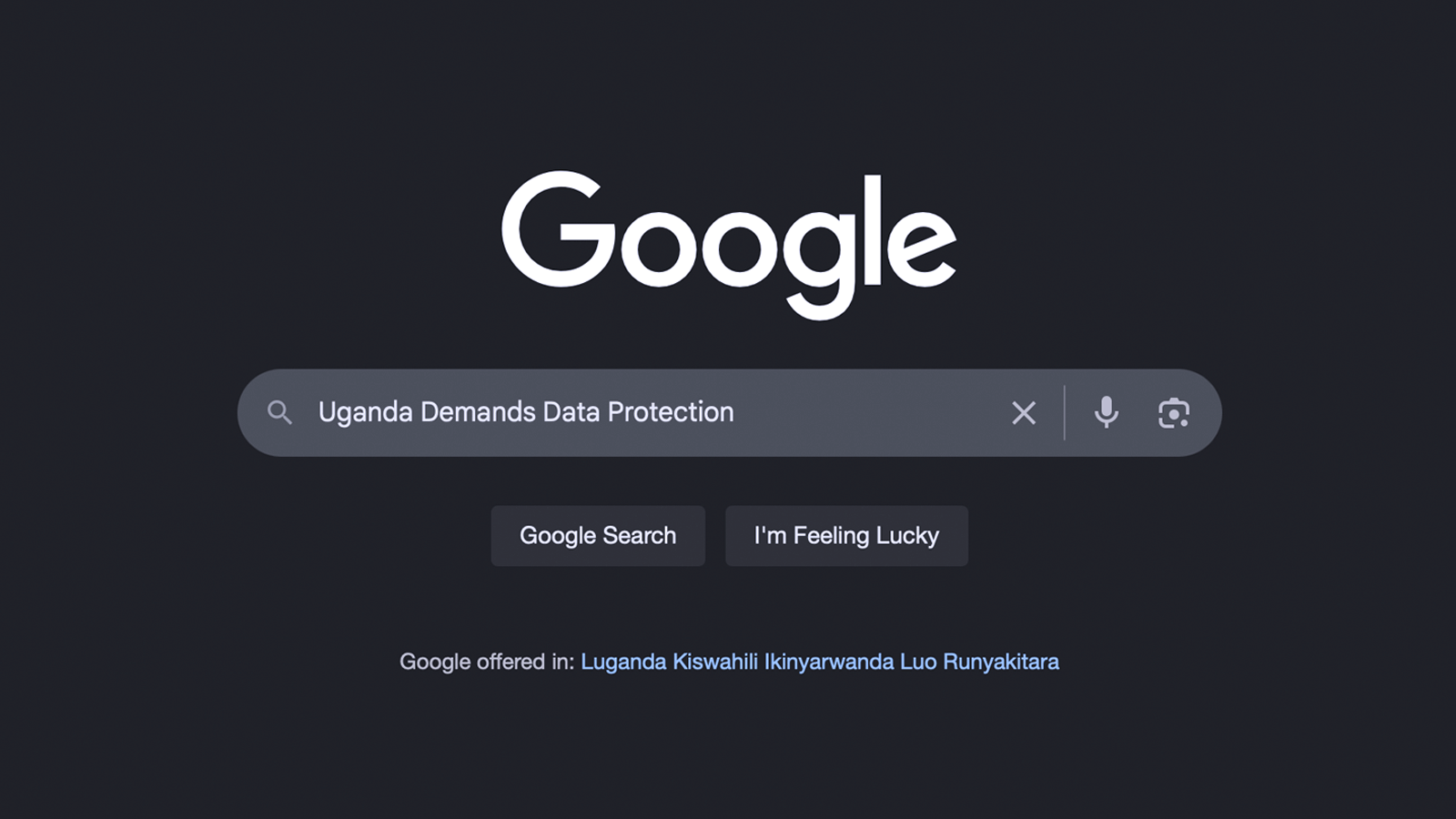Uganda cracks down on Google over data protection breach
-
Original article published by CIPESA under Creative Commons Attribution 4.0 license.
In a July 18, 2025 decision, Uganda’s Personal Data Protection Office (PDPO) found Google LLC in breach of the country’s data protection law and ordered the global tech giant to register with the local data protection office within 30 days.
The decision would place the popular search engine under the ambit of Uganda’s Data Protection and Privacy Act, whose provisions it would have to comply with. In particular, the PDPO has ordered Google to provide – within 30 days – documentary evidence of how it is complying with requirements for transferring the personal data of Ugandan citizens outside of the country’s borders. Google also has to explain the legal basis for making those cross-border data transfers and the accountability measures in place to ensure that such transfers respect Uganda’s laws.
The orders followed a November 2024 complaint by four Ugandans, who argued that as a data collector, controller, and processor, Google had failed to register with the PDPO as required by local laws. They also contended that Google unlawfully transferred their personal data outside Uganda without meeting the legal conditions enshrined in the law, and claimed these actions infringed their data protection and privacy rights and caused them distress.
The PDPO ruled that Google was indeed collecting and processing personal data of the complainants without being registered with the local data regulator, which contravened section 29 of the Data Protection and Privacy Act. Google was also found liable for transferring the complainants’ data across Uganda’s borders without taking the necessary safeguards, in breach of section 19 of the Act.
This section provides that, where a data processor or data controller based in Uganda processes or stores personal data outside Uganda, they must ensure that the country in which the data is processed or stored has adequate measures for protecting the data. Those measures should at least be equivalent to the protection provided for under the Ugandan law. The consent of the data subject should also be obtained for their data to be stored outside Uganda.
In its defence, Google argued that since it was not based in Uganda and had no physical presence in the country, it was not obliged to register with the PDPO, and the rules on cross-border transfers of personal data did not apply to it. However, the regulator rejected this argument, determining that Google is a local data controller since it collects data from users in Uganda and decides how that data is processed.
The regulator further determined that the local data protection law has extra-territorial application, as it states in section 1 that it applies to a person, institution or public body outside Uganda who collects, processes, holds or uses personal data relating to Ugandan citizens. Accordingly, the regulator stated, the law places obligations “not only to entities physically present in Uganda but to any entity handling personal data of Ugandan citizens, including those established abroad, provided they collect or process such data.”
The implication of this decision is that all entities that collect Ugandans’ data, including tech giants such as Meta, TikTok, and X, must register with the Ugandan data regulator. This decision echoes global calls to hold Big Tech more accountable, and for African countries to have strong laws as per African Union (AU) Convention on Cyber Security and Personal Data Protection (Malabo Convention), and the AU Data Policy Framework.
However, enforcement of these orders remains a challenge. For instance, Uganda’s PDPO does not make binding decisions and only makes declaratory orders. Additionally, the regulator does not have powers to make orders of compensation to aggrieved parties, and indeed did not do so under the current decision. It can only recommend that the complainants engage a court of competent jurisdiction, in accordance with section 33(1) of the Act.
Conversely, the Office of the Data Protection Commissioner of Kenya established by section 5 of Data Protection Act, 2019 and the Personal Data Protection Commission of Tanzania established by section 6 of the Protection of Personal Information Act, 2022 are bestowed with powers to issue administrative fines under sections 9(1)(f) and section 47 respectively.
The dilemma surrounding the Uganda PDPO presents major concerns about its capacity to remedy wrongs of global data collectors, controllers and processors. Among its declarations in the July 2025 decision was that it would not issue an order for data localisation “at this stage” but “Google LLC is reminded that all cross-border transfers of personal data must comply fully with Ugandan law”. This leaves unanswered questions over data sovereignty and respect for individuals’ data rights given the handicaps faced by data regulators in countries such as Uganda and the practicalities presented by the global digital economy.
In these circumstances, Uganda’s Data Protection and Privacy Act should be amended to expand the powers of PDPO to impose administrative fines so as to add weight and enforceability to its decisions.

-
Original article published by CIPESA under Creative Commons Attribution 4.0 license.
In a July 18, 2025 decision, Uganda’s Personal Data Protection Office (PDPO) found Google LLC in breach of the country’s data protection law and ordered the global tech giant to register with the local data protection office within 30 days.
The decision would place the popular search engine under the ambit of Uganda’s Data Protection and Privacy Act, whose provisions it would have to comply with. In particular, the PDPO has ordered Google to provide – within 30 days – documentary evidence of how it is complying with requirements for transferring the personal data of Ugandan citizens outside of the country’s borders. Google also has to explain the legal basis for making those cross-border data transfers and the accountability measures in place to ensure that such transfers respect Uganda’s laws.
The orders followed a November 2024 complaint by four Ugandans, who argued that as a data collector, controller, and processor, Google had failed to register with the PDPO as required by local laws. They also contended that Google unlawfully transferred their personal data outside Uganda without meeting the legal conditions enshrined in the law, and claimed these actions infringed their data protection and privacy rights and caused them distress.
The PDPO ruled that Google was indeed collecting and processing personal data of the complainants without being registered with the local data regulator, which contravened section 29 of the Data Protection and Privacy Act. Google was also found liable for transferring the complainants’ data across Uganda’s borders without taking the necessary safeguards, in breach of section 19 of the Act.
This section provides that, where a data processor or data controller based in Uganda processes or stores personal data outside Uganda, they must ensure that the country in which the data is processed or stored has adequate measures for protecting the data. Those measures should at least be equivalent to the protection provided for under the Ugandan law. The consent of the data subject should also be obtained for their data to be stored outside Uganda.
In its defence, Google argued that since it was not based in Uganda and had no physical presence in the country, it was not obliged to register with the PDPO, and the rules on cross-border transfers of personal data did not apply to it. However, the regulator rejected this argument, determining that Google is a local data controller since it collects data from users in Uganda and decides how that data is processed.
The regulator further determined that the local data protection law has extra-territorial application, as it states in section 1 that it applies to a person, institution or public body outside Uganda who collects, processes, holds or uses personal data relating to Ugandan citizens. Accordingly, the regulator stated, the law places obligations “not only to entities physically present in Uganda but to any entity handling personal data of Ugandan citizens, including those established abroad, provided they collect or process such data.”
The implication of this decision is that all entities that collect Ugandans’ data, including tech giants such as Meta, TikTok, and X, must register with the Ugandan data regulator. This decision echoes global calls to hold Big Tech more accountable, and for African countries to have strong laws as per African Union (AU) Convention on Cyber Security and Personal Data Protection (Malabo Convention), and the AU Data Policy Framework.
However, enforcement of these orders remains a challenge. For instance, Uganda’s PDPO does not make binding decisions and only makes declaratory orders. Additionally, the regulator does not have powers to make orders of compensation to aggrieved parties, and indeed did not do so under the current decision. It can only recommend that the complainants engage a court of competent jurisdiction, in accordance with section 33(1) of the Act.
Conversely, the Office of the Data Protection Commissioner of Kenya established by section 5 of Data Protection Act, 2019 and the Personal Data Protection Commission of Tanzania established by section 6 of the Protection of Personal Information Act, 2022 are bestowed with powers to issue administrative fines under sections 9(1)(f) and section 47 respectively.
The dilemma surrounding the Uganda PDPO presents major concerns about its capacity to remedy wrongs of global data collectors, controllers and processors. Among its declarations in the July 2025 decision was that it would not issue an order for data localisation “at this stage” but “Google LLC is reminded that all cross-border transfers of personal data must comply fully with Ugandan law”. This leaves unanswered questions over data sovereignty and respect for individuals’ data rights given the handicaps faced by data regulators in countries such as Uganda and the practicalities presented by the global digital economy.
In these circumstances, Uganda’s Data Protection and Privacy Act should be amended to expand the powers of PDPO to impose administrative fines so as to add weight and enforceability to its decisions.

Good, this bullshit has never made a compelling argument
In its defence, Google argued that since it was not based in Uganda and had no physical presence in the country, it was not obliged to register with the PDPO, and the rules on cross-border transfers of personal data did not apply to it. However, the regulator rejected this argument, determining that Google is a local data controller since it collects data from users in Uganda and decides how that data is processed.







